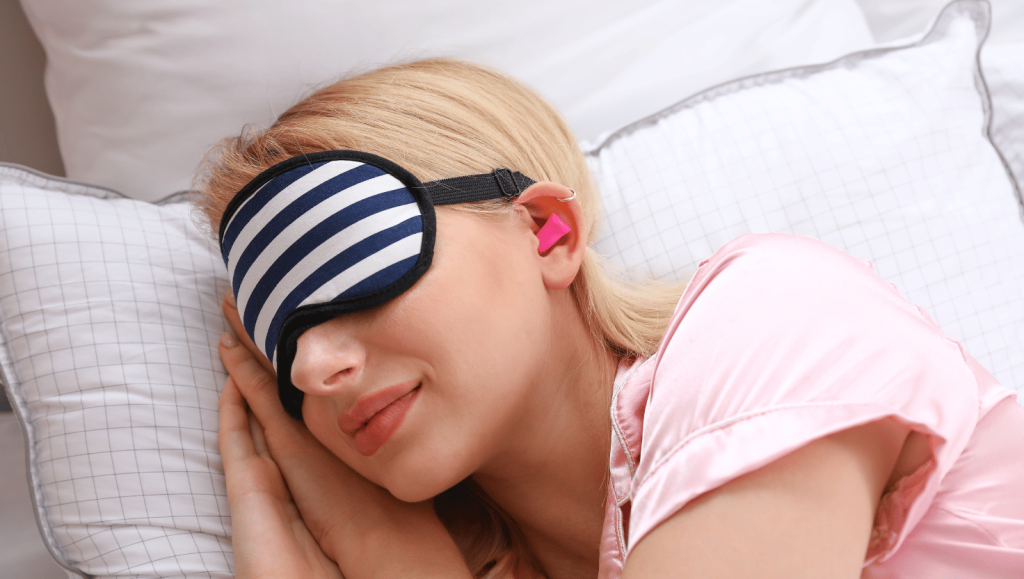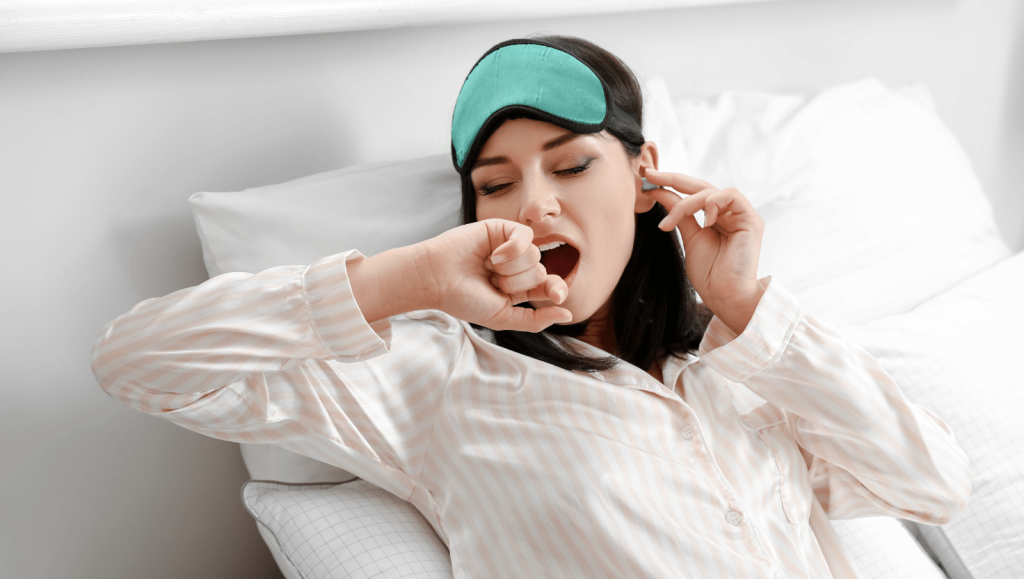Rest is an important segment of every person’s life cycle. Our bodies and minds need a break and need to work efficiently. But still, there are moments when something from outside, like noise, interferes with our sleep. That is where earplugs become handy. They are personal accessories used to minimize noise at night when we are sleeping, and many people utilize them. But is it advisable to sleep with earplugs? Before moving deeper into the topic, let us explore the advantages, disadvantages and real-life implications of using earplugs while sleeping.
Advantages of Using Earplugs during Sleeping

1. Improved Sleep Quality
Sleeping with earplugs has become popular; it increases your sleep quality. Noise reduction is a key reason why many people wearing earplugs get to sleep better. These are especially beneficial to people who live in noisy areas, for instance, in central business districts besides airports or along major freeways. It reduces the chances of one being wakened up by noise from the surroundings or noises produced by other people around, thus making one feel so relieved when they wake up.
2. Better Rest for Light Sleepers.
This kind of sleeper can easily be woken up by any sort of noise, no matter how faint. But for them, earplugs can be a breakthrough. By using earplugs, people can get uninterrupted and healthy sleep and improve their health. They lower the ambient noise filtration and could easily whisk the user through the sleep stages from light to deep sleep, thereby effecting an efficient rejuvenation of the body.
3. Reduced Sleep Disorders
Some of the sleep disorders include sleep apnoea or snoring, which compromise the quality of sleep. In such instances, earplugs can be combined together with other treatments in a bid to minimize noise that may worsen the situation. Suffice it to say that, by reducing the influence of extraneous stimuli, people diagnosed with SDs may experience more restful sleep and not wake up just because they heard a snap or some noise.
4. To Protect us From Noise Pollution
Environmental noise pollution is a problem in many global cities and towns. The areas with high traffic, construction sites and noisy neighbours are usually areas where human beings are exposed to noise pollution. Wearing earplugs before bed is one way that people can help hold back the damaging effects of noise pollution. Such effects include high stress, heart disease and the general decline of human intelligence. It becomes quite possible to be healthier if we avoid being exposed to noisy environments often.
Disadvantages of Sleeping with Earplugs

1. Difficulty in Waking Up
Another disadvantage of the present earplugs is how to turn to the desired sounds like alarms, traffic, or smoke alarms during the night. Especially when one has to wake up at a certain time, or there is an event that has to be covered. Therefore, users can choose to take advantage of a smart alarm system or to practice other ways, such as a vibrating pillow or mattress pad.
2. Misuse or Inadequate Fit
The problem of misusing earplugs or not putting them correctly affects their efficiency in excluding noise. Sometimes, the earplugs are placed inappropriately; for instance, placing them only halfway into the ear canal or failing to create a proper seal, which, in fact, decreases noise reduction to only 10 db. Further, some people have a problem with earplugs because of their discomfort or a sensation of pressure, which is already uncomfortable for those who have problems with their ears or some ear diseases.
3. Reduced Sensitivity about the Environment
Wearing earplugs during sleep may also result in a reduced ability to detect the events happening around. Sometimes, this may be effective, particularly for bodies that are sensitive to stimuli and, hence, difficult to sleep, especially at night. In a sense, it is very unhelpful, but very useful in a way that it is when you need to stay awake or in dangerous surroundings.
4. Disrupted Sleep from Earplugs
Usually, earplugs help in suppressing noise; however, in some cases, they can interfere with sleep. This occurs when the earplugs don’t fit properly into the ears or when the earplugs give way to some noises. In such situations, earplugs can actually become a nuisance and cause disorientation in the natural biological rhythm of sleep.
Practical Considerations
1. Selecting the Right Earplugs
Picking the right type of earplugs is crucial if you want to maximize noise cancellation and enjoy your great hearing experience. Some of the most common earplugs are foam ones, wax, silicone, and, last but not least, custom-made earplugs. Stability, comfort, and sizes and materials of the Earplugs have to be put into consideration.
2. How to Best Use and Clean Earplugs.
To maximize earplug’s utility and durability, the following guidelines have to be followed: Users should also clean their earplugs as often as the manufacturers recommend. They should also make certain that the earplugs are duly positioned and locked in to reduce noise levels to the maximum.
3. Alternatives to Earplugs
There are some people who can’t use earplugs; so, knowing other ways you can drown out the noise when you sleep at night is a must. A fan, white noise machine or sound machine will be useful in eliminating any sound that may disrupt sleep. If you struggle to prevent the light, consider getting some blackout curtains or even a sleep mask.
We can say that a person who uses Ear plugs for sleeping will have both a positive effect and a negative on their sleep. As part of the positives, they assist in enhancing the quality of sleep or the elimination of sleep disorders and help protect the user from noise; the negatives include it being difficult to get out of bed, and one is not well aware of the environment. Finally, use of earplugs while you sleep is a matter of specialized need and circumstance in a person’s life.
